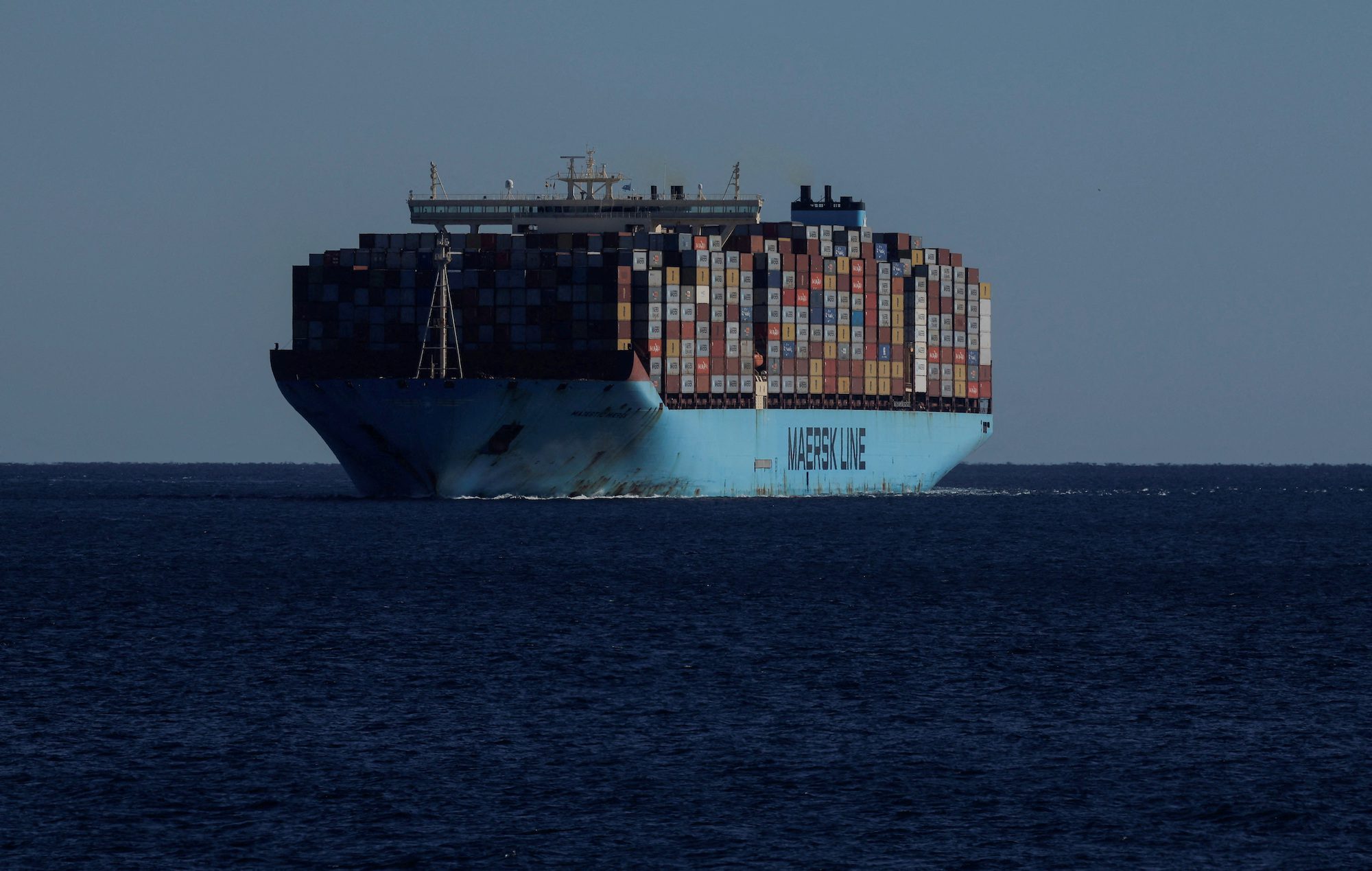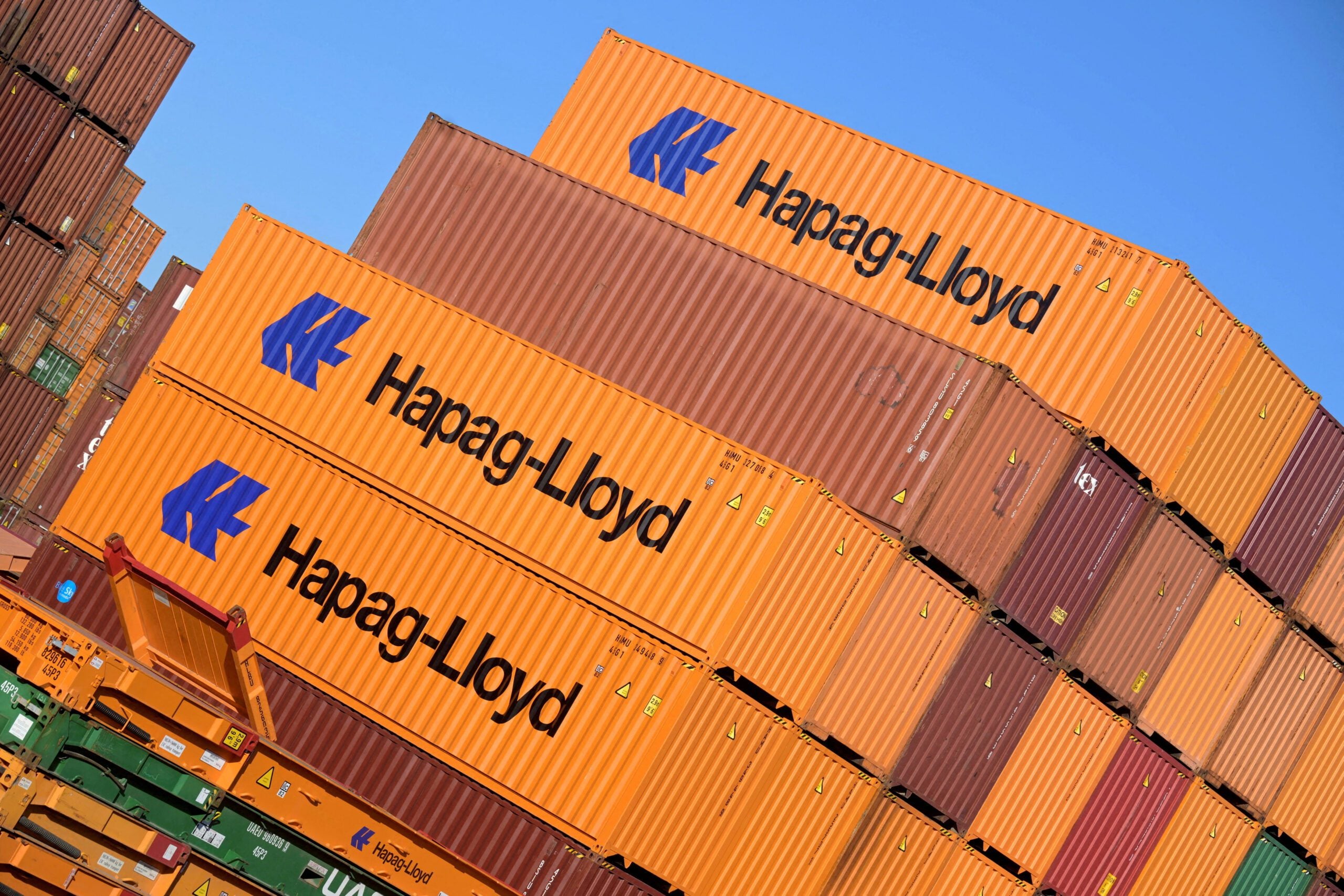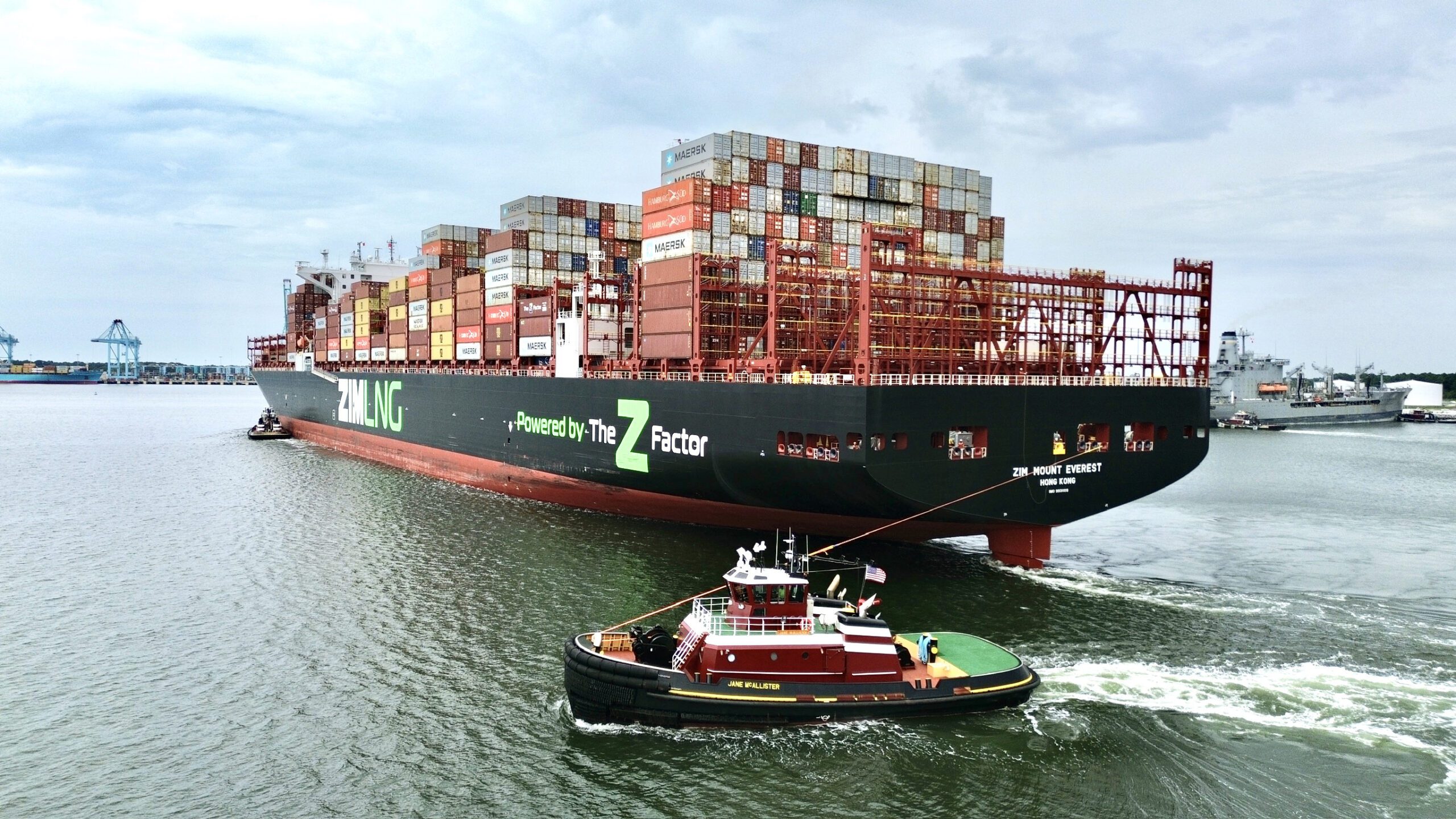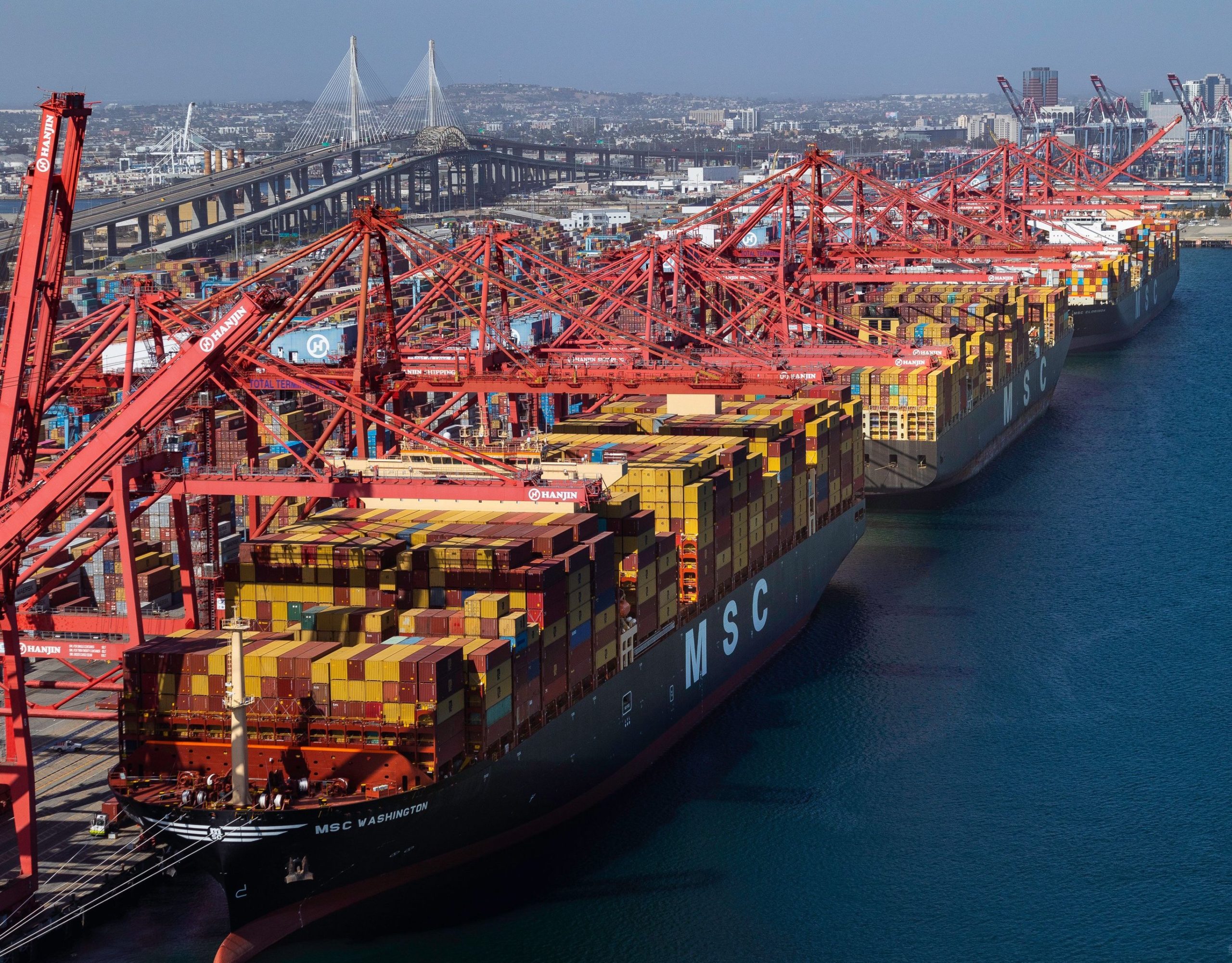A.P. Moller-Maersk expects global container volume growth of approximately 4% in 2025, as the shipping giant adapts to ongoing Red Sea disruptions and potential supply-demand imbalances.
The Danish shipping and logistics company, coming off it’s third most profitable year in 2024 with a 65% EBIT increase to USD 6.5 billion, faces a complex and highly uncertain market in the year ahead.
“Our ability to navigate shifting circumstances and ensure steady supply chains for our customers was put to the test throughout 2024. Our efforts were rewarded with record-high customer satisfaction,” said Vincent Clerc, Maersk’s CEO.
Maersk Sees Global Container Market Growth Despite Trade War
Like others in the liner segment, Maersk has largely managed the Red Sea crisis through route adjustments. Despite the challenges of redirecting vessels around the Cape of Good Hope, Maersk was able to maintain stable operational costs while offsetting increased fuel consumption in 2024.
Maersk’s Ocean segment saw significant profitability gains, with EBIT rising from USD 2.2 billion in 2023 to USD 4.7 billion in 2024. The improvement came from higher freight rates due to Red Sea disruptions and strong volume demand, leading Ocean revenue to increase from USD 33.6 billion to USD 37.3 billion.
According to Maersk’s report, the Shanghai Containerized Freight Index (SCFI) rose from approximately 1,000 in mid-December 2023, when Red Sea attacks escalated, to nearly 3,750 in early July 2024. The SCFI averaged 150% higher in 2024 compared to 2023.
Maersk’s Logistics & Services division showed growth in 2024, with a 7% revenue increase driven by strong performance in Warehousing, Air, and First Mile products. Meanwhile, the Terminals segment achieved record-high results, benefiting from strong volumes and successful tariff adjustments.
Outlook
Maersk’s 2025 outlook hinges on several key factors—including ongoing newbuild ship deliveries and uncertainty around the Red Sea’s reopening amid the current ceasefire in the Israel-Hamas war in Gaza. The outlook considers two scenarios regarding the Red Sea situation: a mid-year reopening for lower-end projections and a year-end reopening for higher-end forecasts.
Maersk’s 2025 financial guidance projects EBITDA between USD 6.0-9.0 billion and EBIT between USD 0.0-3.0 billion. The company acknowledges that performance will be influenced by various factors, including macroeconomic conditions, bunker fuel prices, and freight rates.
Maersk’s capital expenditure (CAPEX) guidance remains steady, with projections of USD 10.0-11.0 billion for both 2024-2025 and 2025-2026 periods.
For shareholders, Maersk has announced a new share buy-back program of up to USD 2 billion, to be executed over 12 months. Maersk notes that this follows USD 1.6 billion returned to shareholders through dividends and share buy-backs in 2024.
In a significant industry development, Maersk launched the Gemini Cooperation with Hapag-Lloyd on February 1st. This new alliance aims to achieve over 90% reliability through an innovative hub-and-spoke network, deploying approximately 340 vessels across 57 services.
The formation of Gemini marks a major restructuring in global shipping alliances, ending the long-standing 2M Alliance between MSC and Maersk. This shift has triggered broader industry changes, with Ocean Network Express (ONE), HMM, and Yang Ming Marine Transportation forming the new “Premier Alliance” for East-West trade routes.
Meanwhile, Mediterranean Shipping Company (MSC), which holds the position of world’s largest shipping line with approximately 20% market share, has chosen to operate independently.
Clerk concluded: “We successfully capitalized on increased demand while enhancing productivity and rigorously managing costs — all of which contributed to our strong financial performance. With three strong businesses — Ocean, Logistics & Services, and Terminals — plus integrated offerings across the supply chain, we are uniquely positioned to support our customers in an era where geopolitical changes and disruptions continue to reinforce the need for resilient supply chains.”
Editorial Standards · Corrections · About gCaptain

 Join The Club
Join The Club











